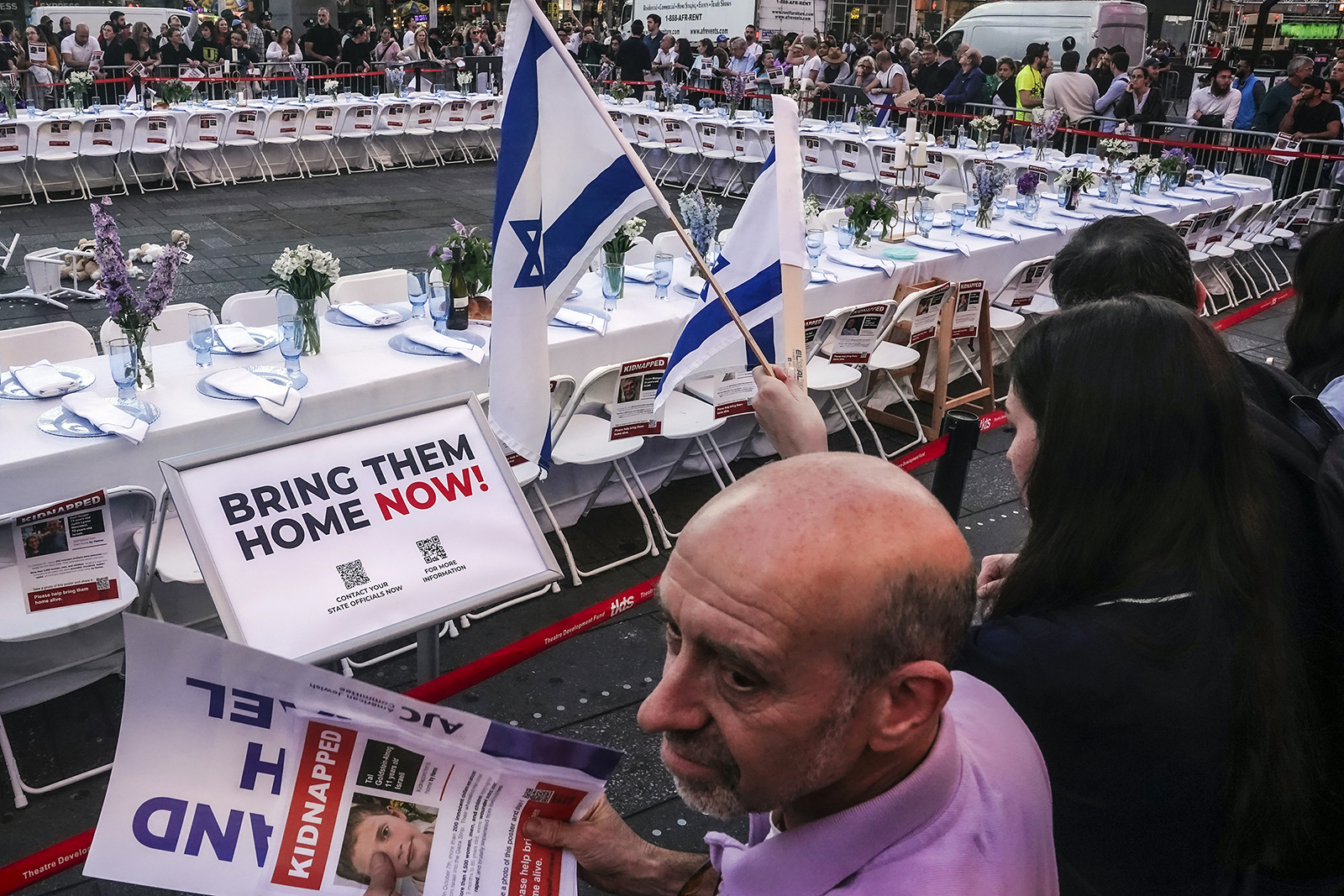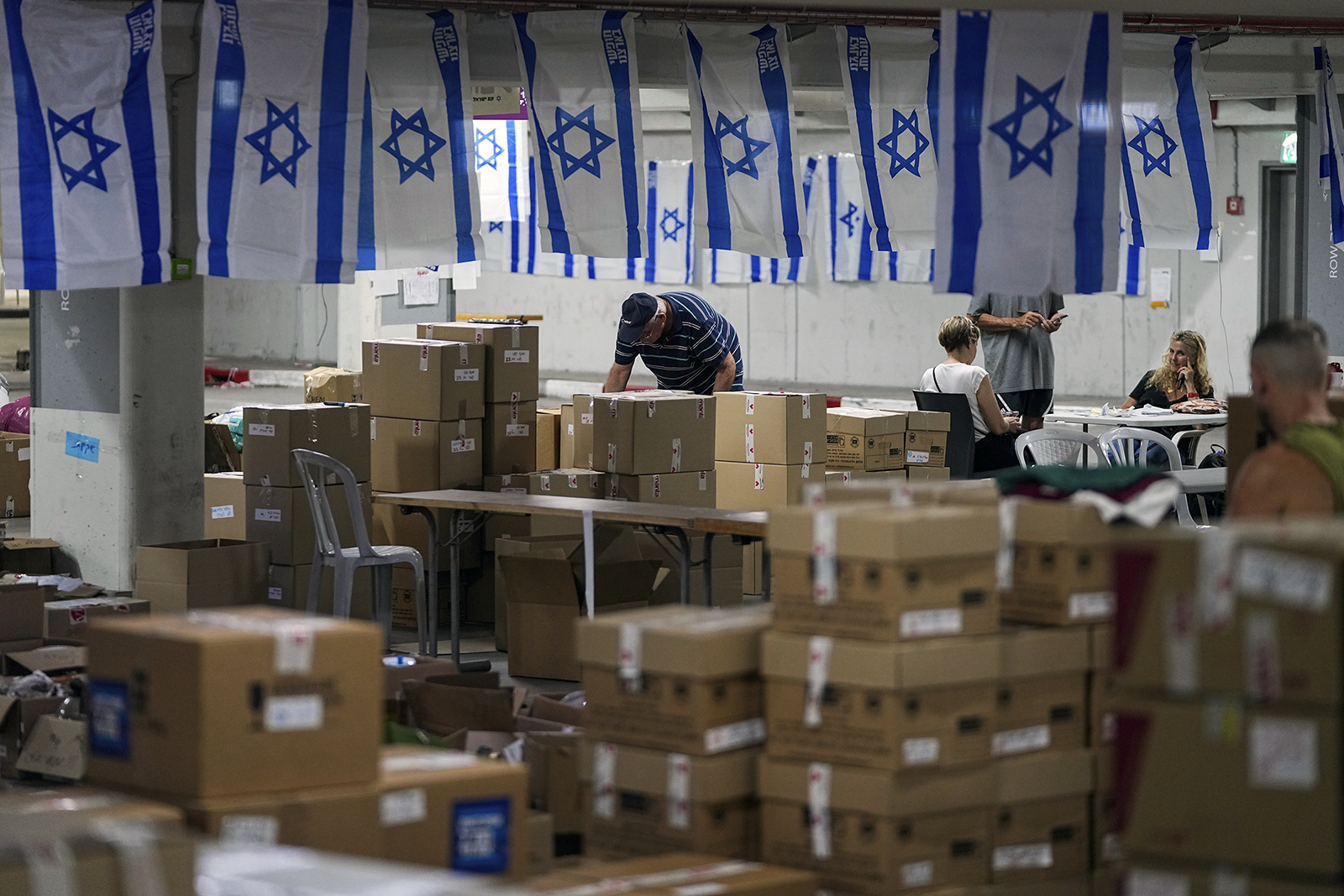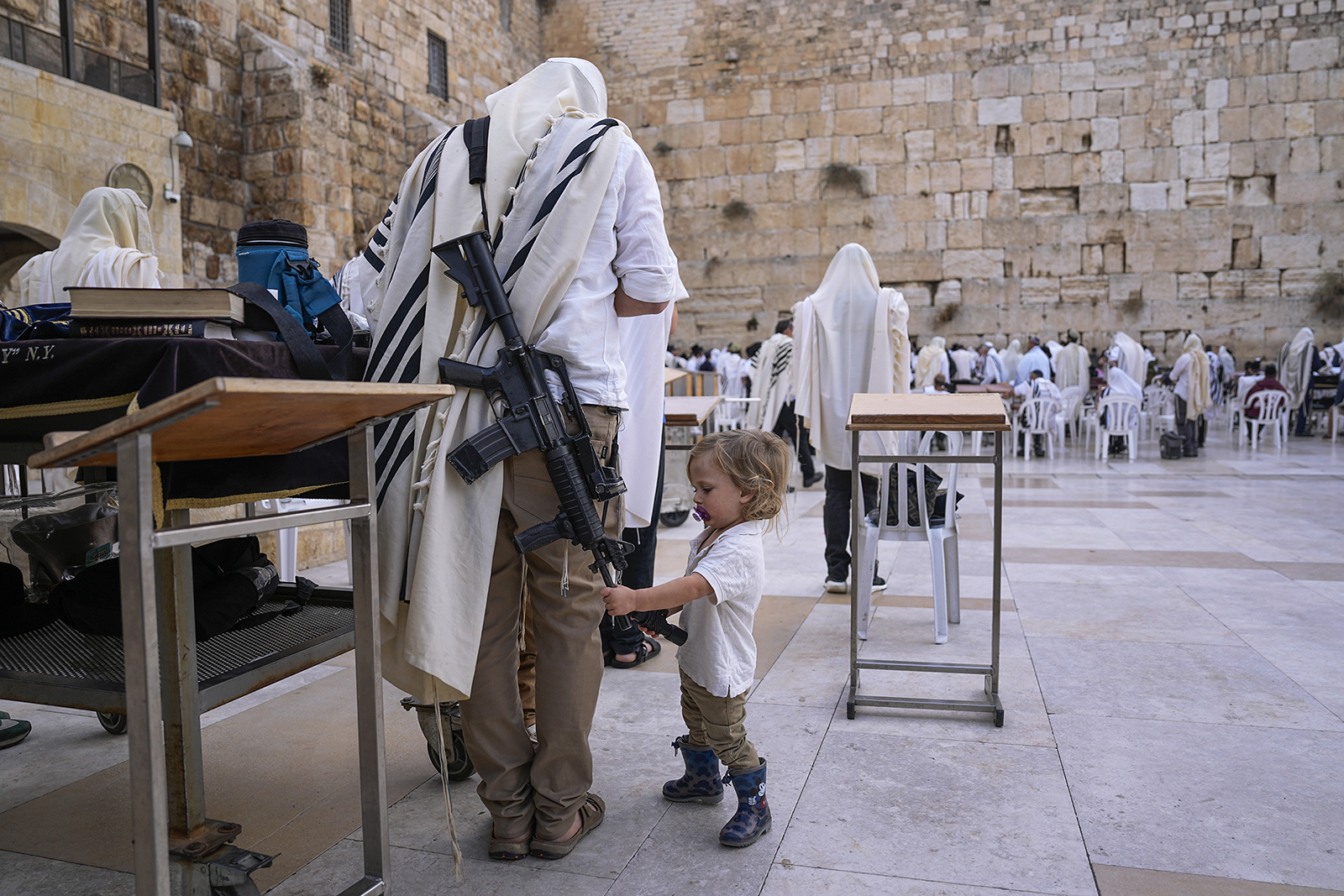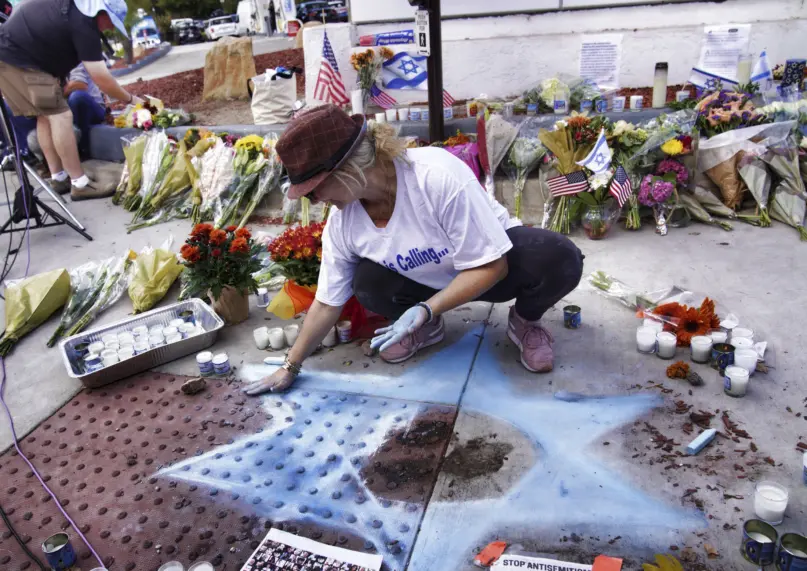(RNS) — Since the Oct. 7 Hamas massacre in southern Israel, Rebecca Einstein Schorr has given her Hebrew name, Rivka, whenever she orders something at Starbucks. “Just hearing it said aloud in public feels like an act of defiance,” says Schorr, a Reform rabbi in eastern Pennsylvania. “It’s a small thing and yet it seems huge.”
Schorr said publicly affirming her Jewishness in everyday life, even when simply ordering a cup of coffee, “connects me with all Jews across all generations, with our ancestral homeland and with my most authentic self.”
The Israel-Hamas war has given rise to a dramatic increase in antisemitic hate crimes, which were already climbing in the U.S., according to FBI statistics. In addition, Jews have been verbally and sometimes physically attacked on college campuses, in the workplace and on the streets of many cities.
In this climate, some American Jews are consciously hiding their Jewish identities, leaving Star of David necklaces at home and removing mezuzahs from their doorposts, even as others take to the streets and social media to shout their pride in their Jewish identity and the state of Israel.
“Antisemitism and anti-Israelism have awakened many American Jews to their semidormant Jewish identity — an understanding of self easily swallowed by the overwhelming broader American culture of endless options,” said Neil S. Rubin, who teaches Jewish history at a Jewish high school near Baltimore.
In a show of religious or ethnic pride, thousands of American Jews who have never worn a Jewish star or supported Israeli causes are doing so now, said Rachel Werczberger, a senior lecturer on the anthropology of Judaism at Hadassah Academic College in Jerusalem.

Israeli Americans and supporters hold displays of kidnapped individuals, calling for their return, as they gather around an installation in Times Square featuring a 222-seat Shabbat (Sabbath) table set, a symbolic representation of hostages still held captive by Hamas in the Gaza Strip, Oct. 26, 2023, in New York. (AP Photo/Bebeto Matthews)
Many Jews have reacted to statements by professional organizations in Hollywood, literary groups and campus organizations that have accused Israel of being the aggressor in the Israeli-Palestinian conflict, instead of expressing outrage at Hamas’ atrocities and failing to demand the release of hostages taken by Hamas.
Progressive Jews in particular have felt betrayed by social justice coalitions and feminist groups that insist Jews are guilty of “white privilege” and that Israelis are “colonizers.” The refusal by many allies to acknowledge Jewish suffering after the massacre “really pushed people back into their collective identity as Jews,” Werczberger said.
In response, she said, “Jews have been looking for external symbols to say ‘I’m Jewish and I’m not afraid to show it.’”
Their affirmations are not just a matter of Jewish pride but of solace in a dark time, according to Rabbi Arie Hasit, associate dean of the Schechter Rabbinical Seminary in Jerusalem. Jews in Israel and abroad are experiencing a level of shock and grief “that is too heavy to bear alone,” the Conservative rabbi said.
At a time when anti-Israel groups are chanting “From the river to the sea, Palestine shall be free” — a phrase that Jews say is a call for the extermination of Israel and the Jewish people — “there is the feeling that we only have each other,” said Hasit.
Communal expressions of Jewishness are taking many forms, from activism to philanthropy.
More than 50% of Israelis, including many Arab citizens of Israel, performed war-related volunteer work during the first two weeks of the war, according to a Hebrew University study. They have cooked tens of thousands of hot meals and knitted warm caps for Israeli soldiers. Donors have given clothes, toys and diapers to the 250,000 Israelis displaced from their homes near Gaza or the northern border by the risk of rocket fire from Hamas and other groups.

Volunteers work at a donation center to support Israeli soldiers and the hundreds of thousands of Israelis evacuated from their homes in the north and south during the Israel-Hamas war, at the headquarters of the Brothers in Arms aid organization in Tel Aviv, Israel, Oct. 25, 2023. (AP Photo/Ohad Zwigenberg, File)
After the Jewish Federations of North America launched a $500 million campaign Oct. 12 to support urgent humanitarian needs and longer-term rebuilding and rehabilitation, it announced it has already surpassed its goal by more than $150 million.
But Jews are also reinvesting in their religious practice, expanding their participation at synagogues and in private prayer.
Sarah Cohen, who lives in New York, says she is “leaning in hard to Jewish joy and community” to cope with the trauma of war and antisemitism. “Going to shul on Fridays, making challah, and lighting candles are things I’ve done anyway, but I signed up to do mitzvot in honor/in the name of an IDF soldier,” she said in an email. “This weekend I went to early morning Torah study yesterday and ended up staying for services, which I don’t normally do on Saturdays. But it felt good,” Cohen wrote.
In Israel, where Saturday is the Sabbath and even the most secular of Jewish children are raised on Bible stories and speak fluent Hebrew, cultural Judaism is a way of life. But since Oct. 7, many secular Israelis have embraced rituals that have sustained Jews through other difficult times over the millennia. In the army, many secular soldiers are wearing tzizit, the square garment with ritual fringes that, according to the Torah, reminds Jews that God is always with them.

An off-duty member of Israel’s security forces joins worshippers at the Western Wall, the holiest site where Jews can pray, in the Old City of Jerusalem, Nov. 14, 2023. Tens of thousands of Israeli reservists have been called up for action for the war against Hamas, while other security personnel have begun to carry weapons in public, after the Hamas deadly cross-border attack on Oct. 7. (AP Photo/Ohad Zwigenberg)
“Studies have shown us just how much Jewish narrative there is even for secular Israeli Jews, but what is always there in the background comes to the front in times of crisis,” said Shlomo Guzmen-Carmeli, a senior lecturer at Bar Ilan University’s department of sociology and anthropology.
Hamas’ attack, which took place on the Jewish holiday of Simchat Torah, “was an echo of Jews being slaughtered in the shtetls of Europe,” Guzmen-Carmeli said. That historical echo “is bringing together Jews in the Diaspora and in Israel.”
While Diaspora Jews and Israeli Jews have very different life experiences and often disagree on religion-state issues and the best way to solve the Palestinian-Israeli conflict, these disagreements have faded into the background since the war started.
“There are still controversies over the way the Israeli government deals with non-Orthodox Jews, on the status of the Western Wall and judicial reform,” he said, “but I think we’ve regained our ability to imagine ourselves as a united, whole and deeper culture.”





